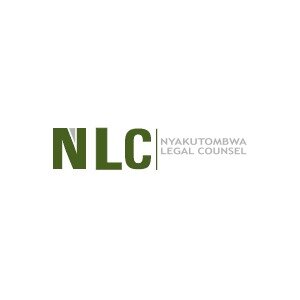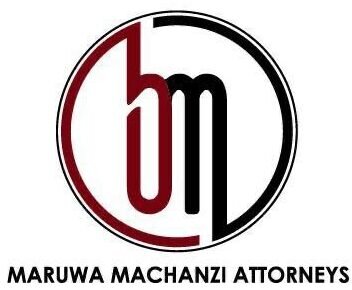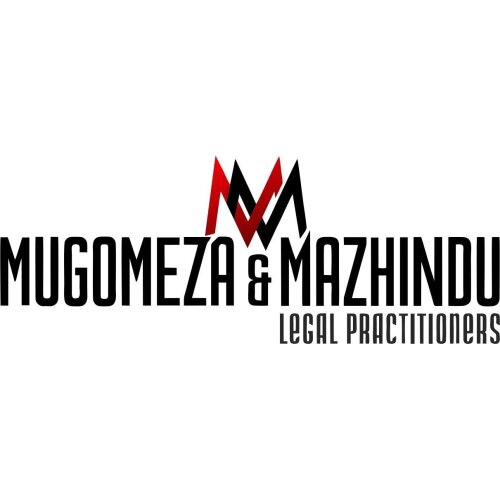Best Financial Services Regulation Lawyers in Zimbabwe
Share your needs with us, get contacted by law firms.
Free. Takes 2 min.
Or refine your search by selecting a city:
List of the best lawyers in Zimbabwe
About Financial Services Regulation Law in Zimbabwe
Financial Services Regulation in Zimbabwe primarily governs the institutions and markets involved in financial activities to ensure their integrity, stability, and protection of consumers. The Reserve Bank of Zimbabwe (RBZ) plays a significant role in overseeing the banking sector, while the Securities and Exchange Commission of Zimbabwe (SECZ) regulates the capital markets. Insurance services are regulated by the Insurance and Pensions Commission (IPEC). The overall framework aims to promote stability in the financial system, protect consumers, reduce financial crimes, and enhance overall economic growth.
Why You May Need a Lawyer
Several common situations may require legal assistance in the realm of Financial Services Regulation:
- Starting or operating a financial services company, requiring advice on regulatory compliance.
- Handling disputes between financial service providers and clients over contracts or service terms.
- Conducting mergers and acquisitions in the financial sector, necessitating due diligence and regulatory advice.
- Ensuring corporate governance and anti-money laundering compliance.
- Negotiating with or responding to actions from regulators like the RBZ or SECZ.
- Addressing inquiries or investigations related to financial misconduct.
- Reviewing and understanding changes in financial regulation.
Local Laws Overview
Key aspects of local laws in Zimbabwe that are particularly relevant to Financial Services Regulation include:
- Banking Act: Governs the establishment, operations, and dissolution of banking institutions in Zimbabwe, with emphasis on requirements for banks and their service terms.
- Securities Act: Regulates the capital markets, including the conduct of securities exchanges, brokerage, and investment advisory services.
- Insurance Act: Focuses on the authorization, administration, and oversight of insurance entities, ensuring protection for policyholders.
- Anti-Money Laundering and Proceeds of Crime Act: Provides guidelines for the prevention, detection, and prosecution of money laundering activities.
- Pension and Provident Funds Act: Regulates the operation of pension schemes to ensure their sustainability and compliance with financial regulations.
Frequently Asked Questions
What is the role of the Reserve Bank of Zimbabwe in financial services regulation?
The Reserve Bank of Zimbabwe is crucial in regulating the banking sector, ensuring stability, license issuance, and compliance with monetary policies.
What is required to start a financial services company in Zimbabwe?
To establish a financial services company, you must register with the relevant regulatory bodies, like the RBZ or SECZ, and adhere to specific compliance and capital requirements.
How does the Securities and Exchange Commission of Zimbabwe operate?
The SECZ ensures fair, secure, and transparent capital market operations, regulates securities exchanges, and oversees market participants.
How do financial regulations protect consumers?
Regulations mandate clarity in service terms, prevent abusive practices, ensure fair treatment, and set procedures for handling consumer complaints.
Why is compliance with anti-money laundering laws crucial?
Compliance prevents financial crimes, safeguards the integrity of the financial system, avoids legal penalties, and protects reputational risk for businesses.
What actions can be taken if a financial institution violates regulations?
Aggrieved parties can contact relevant authorities like the RBZ or SECZ for investigation. Remedies may involve penalties, compensation, or operational adjustments.
Can foreign investors participate in Zimbabwe's financial markets?
Yes, but they must comply with local regulations on foreign investments and may require approval from regulatory bodies.
What are common penalties for non-compliance with financial regulations?
Penalties range from fines and sanctions to revocation of licenses and criminal charges, depending on the severity of the violation.
How can a company ensure adherence to financial regulation?
Implement robust compliance systems, conduct regular audits, provide staff training, and consult legal or compliance experts.
Can disputes with financial institutions be arbitrated?
Yes, many disputes can be settled through arbitration or mediation, often recommended before escalating to court.
Additional Resources
For those seeking more information or needing legal support, consider the following resources:
- Reserve Bank of Zimbabwe (RBZ): Provides guidelines and support for the banking sector.
- Securities and Exchange Commission of Zimbabwe (SECZ): Offers resources and assistance for securities-related inquiries.
- Insurance and Pensions Commission (IPEC): Regulates and provides information on insurance and pension matters.
- Ministry of Finance and Economic Development: Publishes relevant policy updates and financial guidelines.
Next Steps
If you require legal assistance in Financial Services Regulation in Zimbabwe, consider the following steps:
- Identify the specific area of concern or legal issue you are facing.
- Consult with financial services regulation experts or legal professionals with experience in Zimbabwean financial laws.
- Review official guidelines from the related regulatory body, such as RBZ, SECZ, or IPEC.
- Consider engaging a qualified lawyer to review compliance requirements and represent your interests if necessary.
- Stay informed about changes in financial regulations to ensure ongoing compliance.
Lawzana helps you find the best lawyers and law firms in Zimbabwe through a curated and pre-screened list of qualified legal professionals. Our platform offers rankings and detailed profiles of attorneys and law firms, allowing you to compare based on practice areas, including Financial Services Regulation, experience, and client feedback.
Each profile includes a description of the firm's areas of practice, client reviews, team members and partners, year of establishment, spoken languages, office locations, contact information, social media presence, and any published articles or resources. Most firms on our platform speak English and are experienced in both local and international legal matters.
Get a quote from top-rated law firms in Zimbabwe — quickly, securely, and without unnecessary hassle.
Disclaimer:
The information provided on this page is for general informational purposes only and does not constitute legal advice. While we strive to ensure the accuracy and relevance of the content, legal information may change over time, and interpretations of the law can vary. You should always consult with a qualified legal professional for advice specific to your situation.
We disclaim all liability for actions taken or not taken based on the content of this page. If you believe any information is incorrect or outdated, please contact us, and we will review and update it where appropriate.
Browse financial services regulation law firms by city in Zimbabwe
Refine your search by selecting a city.

















